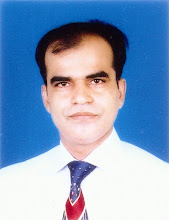The Hindu
July 25, 2008
Under normal circumstances, the election of Ram Baran Yadav, a Madhesi, as the first President of the Republic of Nepal should have been an occasion for celebration.
That a member of a marginalised community was elected as the constitutional head of state would have been a fitting tribute to the inclusive nature of the struggle the Nepali people have waged for their democratic rights.
Yet the manner in which the Nepali Congress (NC), the Communist Party of Nepal (Unified Marxist-Leninist), and the Madhesi Janadhikar Forum (MJF) banded together to thwart the candidature of Ram Raja Prasad Singh, the Maoist nominee for President, is likely to have serious consequences for the political stability of the young republic.
The Communist Party of Nepal (Maoist), the single largest party in the Constituent Assembly, has declared that it is no longer interested in forming the government.
Its reasoning is that if the NC-UML-MJF combination was able to get Mr. Yadav of the NC elected President and Parmanand Jha of the MJF Vice-President, nothing will stop them from choosing a Prime Minister from their own ranks.
Even if the Maoist leader, Prachanda, were to become Prime Minister, the three-party alignment will ensure that he will serve on their sufferance. This means Girija Prasad Koirala — the man who led his party to defeat in the Constituent Assembly elections and has submitted his resignation as Prime Minister to the new President — could re-emerge as Prime Minister. The more things change, the more they remain the same.
Politics in Nepal would not have come to such a pass had the NC and the CPN (UML) been more gracious in defeat and the Maoists more magnanimous in victory.
Politics in Nepal would not have come to such a pass had the NC and the CPN (UML) been more gracious in defeat and the Maoists more magnanimous in victory.
To be fair to the former rebels, they dropped their initial insistence on holding both the presidency and the prime ministership; and declared that they were prepared to support any presidential candidate other than Mr. Koirala or Madhav Kumar Nepal of the UML. But these two parties refused to nominate a second leader from their own ranks, thus prolonging the stasis that has set in since mid-April, when the CA results were declared.
It was only when the Maoists nominated Mr. Singh that the NC and the UML leapt in with Madhesi nominees of their own. The Maoists had proposed splitting the four top constitutional posts equally among Nepal’s hill, plains, tribal, and female population.
By offering the vice-presidency to the MJF, the NC managed to wreck the Madhesi outfit’s compact with the Maoists.
Forming a government without Maoist participation will be undemocratic as well as extraordinarily unwise: it will stand the verdict of the Constituent Assembly elections on its head and jeopardise the whole democratic exercise.






